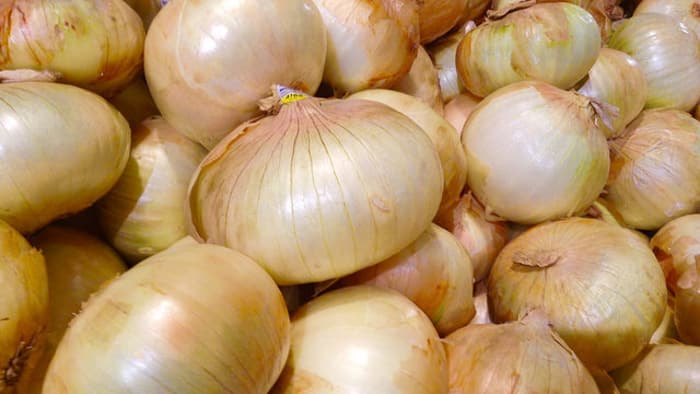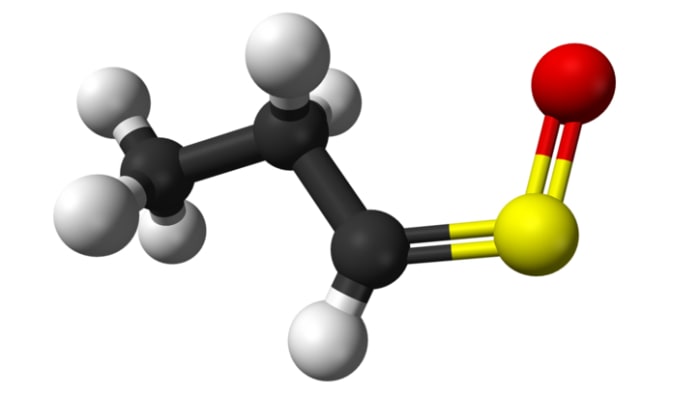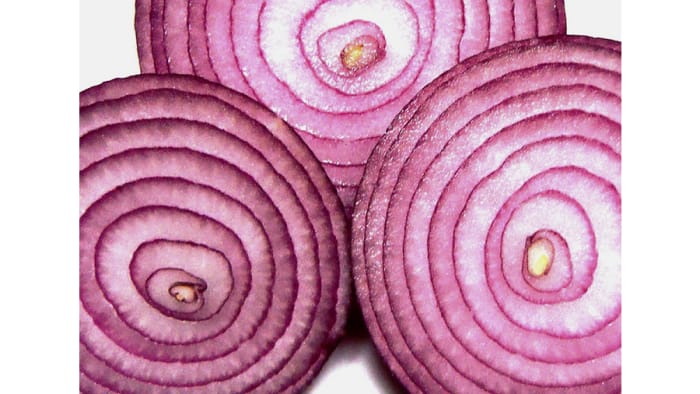“Crying is cleansing”, or why onions are no reason to weep
Why do we cry while cutting onions?
We all know those stoic types who never cry. But there is still one thing that can bring them to tears – onions. Why do people cry while cutting onions? Are onions harmful or can they be a remedy?

In the famous Italian children’s story by Gianni Rodari, the onion boy Cipollino defeated the chief villain by making him cry. No wonder, since we all cry every time we cut onions in the kitchen. Moreover, the smell is so strong that it we often have to ventilate the room.
What is “wrong” with onions?!
The substance that makes us cry is syn-Propanethial S-oxide (СН3-СН2– СН=S=О). It has a strong irritant effect.¹

This substance is not the only one which can make us cry. Curiously enough, there is even a relatively large group of compounds with similar irritant properties. They are all called lachrymators (from the Latin word for a tear, lacrima). Some of them are used by the police or the military.
The mechanism of irritation is the following: lachrymators irritate the sensitive ends of the trigeminal nerve, which stimulates the muscles of the eyelids and lacrimal glands. This reaction protects our eyes from more severe lesions.

The smell is caused by sulfuric organic compounds, which are released by cutting onions. The main compound is allyl propyl disulfide (see the picture below) which is responsible for the specific onion smell. In fact, these compounds appear only after cutting. They emerge from the amino acid cysteine after special enzymes transform them to disulfides.²
The smell of onions is almost impossible to get rid of; neither brushing your teeth nor rinsing out your mouth can help. The reason is that these compounds are formed in the lungs! Disulfides enter the blood and spread throughout the body, reaching the lungs. From there they are released with exhaled air.
Onions are your friends
In spite of all the inconveniences, onions are very healthy, nutritious and essential, especially in winter.

Onions are a great source of vitamins C, E, B1-B3, B5-B6, and B9. Additionally, they are rich in microelements such as potassium, iron, sulfur, phosphor, calcium, and magnesium. All these nutrients enhance the immune system and make us more resistant to infections.
Essential oils and phytoncides of onions have antibacterial properties and can be effective against harmful germs such as streptococcus, agents of dysentery and diphtheria, mycobacterium tuberculosis, etc.
Onions are good for the digestive system, they activate the metabolism and cleanse the blood, and eliminate constipation. However, onions are irritant to mucosa, so they are contraindicated for people with gastritis or gastric ulcers.³
To sum up
Now it is clear that onions not only torture people, making them cry because of disulfides. Apart from organic sulfides, onions contain many nutrients that help us to stay healthy. So is it worth weeping a little bit with onions, or being ill without them?
References:
1. Zwanenburg, B. (2004). "Thioaldehyde and Thioketone S-Oxides and S-Imides (Sulfines and Derivatives)". In Padwa, A. Heteroatom Analogues of Aldehydes and Ketones. Science of Synthesis 27. pp. 135–176. ISBN 9781588902047.
2. Block, E. (2010). Garlic and Other Alliums: The Lore and the Science. Royal Society of Chemistry. ISBN 0-85404-190-7.
3. J. C. Harris, S. Cottrell, S. Plummer, D. Lloyd. Antimicrobial properties of Allium sativum. Applied Microbiology and Biotechnology. October 2001, Volume 57, Issue 3, pp 282-286.